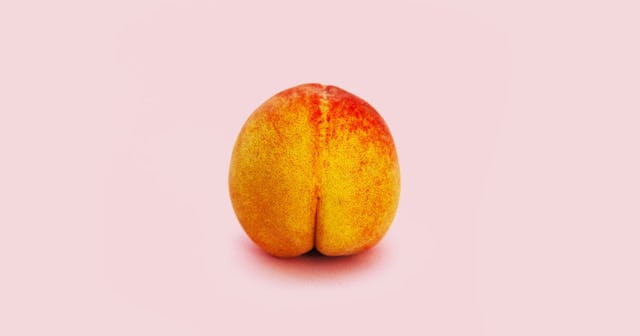Real Talk: Pregnancy Hemorrhoids Will Strip You Of Any Dignity You Had Left

As if you don’t have enough to worry about “down there” during pregnancy, hemorrhoids can very quickly develop into a literal pain in the butt. The discomfort can swiftly turn into a nightmare, making you feel like you’re wiping with sandpaper during every trip to the bathroom. But what are hemorrhoids, anyway, and how can you treat them once they’ve appeared? Read below what you need to know about the most common symptom of pregnancy.
What is a hemorrhoid?
Hemorrhoids are varicose veins inside or outside of the lower rectum and anus that become swollen and enlarged. Depending on the kind of hemorrhoid, the symptoms may vary. If you’re suffering from external hemorrhoids, you may experience itchiness, irritation, bleeding, and swelling in the anal region. Internal hemorrhoids can be irritated by bowel movements and cause bleeding or irritation. Pregnancy is the gift that keeps giving!
Sometimes, an external hemorrhoid can form a blood clot. This is called a thrombosis. A thrombosed hemorrhoid, which is colored blue or purple and can be hard, is often quite painful and may bleed. Don’t worry, though! Over time, thrombosed hemorrhoids will reabsorb into the body.
Why am I getting hemorrhoids?
During pregnancy, constipation is often a struggle — and with constipation comes hemorrhoids. All of that straining and time on the toilet puts pressure on your poor rectum, which can affect blood flow in that region and cause swelling.
During the third trimester, you are at a greater risk for hemorrhoids. Awesome! That’s because starting around week 25, pressure from your growing uterus and increased blood flow to your pelvic region can cause veins in the rectal area to swell and itch.
How can I prevent hemorrhoids?
One trick to preventing hemorrhoids? Managing your gastrointestinal health and avoiding constipation. This means you should be drinking lots of water and eating foods high in fiber, such as fruits, vegetables, and whole grains. You can drink prune juice or eat prunes to help stay regular and avoid processed foods such as white rice, pasta, and white bread.
To improve circulation, make sure you’re getting up and moving around. Take a walk or do other physical activity that your doctor has okayed.
How can I treat hemorrhoids?
You can’t get rid of hemorrhoids, but you can treat them until they go away on their own. Keep your rectal area clean and wipe gently. And don’t scrimp on toilet paper! None of this one-ply crap. Get some cushy tissue and treat yourself.
You can use witch hazel packs or cold packs to help comfort your bum and reduce swelling. Taking lukewarm baths — also known as sitz baths — is also a great way to keep clean and soothe your tush if you’re in pain or discomfort.
When should I see a doctor?
It can be scary to see blood in the toilet at any time, but it’s especially frightening when you’re pregnant. Sometimes hemorrhoids bleed, but it can be difficult to discern whether something other than hemorrhoids is causing the bleeding. If you are at all concerned about your hemorrhoids or any bleeding, call your doctor and ask to come in for a check-up.
Written by Patricia Grisafi.
This article was originally published on